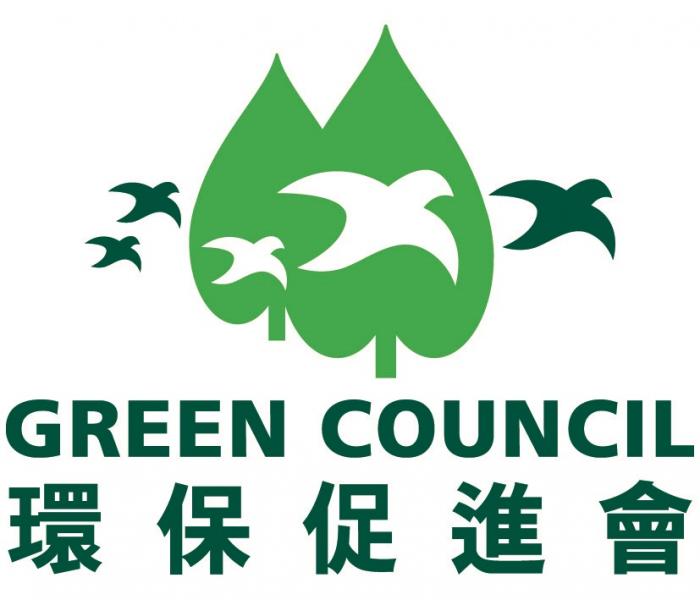Green Council’s Report: “Adoption of Green Technologies Across Enterprises”
Administrator Senin, 23 April 2018 17:49 WIB

Over 60% participants agreed general lack of reliable and available information in Green Technologies
HONG KONG, CHINA - Media OutReach - 23 April 2018 - Green Council's "GreenTech Alliance" (GTA), from 21 November to 12 December 2017, commissioned the Hong Kong Baptist University's School of Communication to conduct an email and/or in-person survey study of enterprises in various sectors.
The aims were to understand the different practices and attitudes among employers and employees regarding use of green technologies at work, respondents' willingness to accept green technology, and the challenges they faced in doing so.
These findings, in turn, would provide insight into why green technologies continue to be difficult to popularise in Hong Kong, and inform the formation of practical suggestions on how to improve the situation going forward.
There are two versions of the survey: one for enterprises and one for employees. The enterprise version is answered by the business owner or senior management. The employee version is answered by company employees. The survey hopes to paint a full and accurate "on-the-ground" picture of how companies attempt to introduce and implement green technology. The study gathered responses from 306 practitioners from 81 companies and ultimately led to an array of new insights.
Survey summary
The survey found that, in principle, 80.3% of enterprise respondents and 81.1% of employee respondents supported the company's introduction of energy-saving and waste reduction technology programmes. But when the costs of such technologies or programmes were mentioned, only between 30%--40% of enterprises expressed clear support.
About half of the companies noted that they were "50-50" -- as in they were open to the idea of these technologies or programmes but found the costs to be concerning. As for employees, about 70% of interviewees were willing to commit additional resources or change their working habits to accommodate the use of green technologies. In general, employees are more receptive to the ideas than enterprises overall.
Cost-effectiveness and economic incentives are important conditions for the popularisation of green technologies. Enterprises are especially concerned about the cost of implementation. They generally hoped that, in addition to the environmental benefits, green technologies could bring financial benefits to their business.
Meanwhile, over 80% of respondents (both enterprises and employees) agreed that green technology is an effective way to reduce energy consumption and waste production, suggesting an overall positive outlook.
Overall, both groups of respondents acknowledged that in addition to the environmental benefits, green technology can improve resource efficiency and reduce company operating costs over the long run. Many respondents agreed that the business sector can play a leading role in promoting green technology and contributing to Hong Kong's energy conservation and waste reduction efforts.
Overall, while enterprises and employees are willing to support increased adoption of green technologies, the lack of relevant information and economic incentives were noted as major roadblocks to promoting green technology solutions. The study shows that most of the information provided to enterprises and employees are from the government and environmental protection organisations.
However, over 60% of all respondents noted a general lack of reliable and available information. Meanwhile, enterprises and employees are in favour of policies that provide economic incentives for the introduction and application of green technology programmes to offset the costs and risks involved. This is especially favoured by enterprises.
GreenTech Alliance's Three Key Recommendations
1. Government introduction of tangible incentives
For enterprises, operating costs are consistently a top consideration. Also, the government is generally the biggest driver of new initiatives. With these two understandings in mind, international examples prove that governments promoting the use of green technology can provide incentives such as tax rebates, which help companies eliminate the fundamental obstacle to implementation cost. With green technology having kicked off to a slow start in Hong Kong, there is also the key question of whether local government policy is up-to-date or not. If new green technologies are to be developed in Hong Kong, the government may need to exercise policy flexibility and understand the need to deploy resources in a timely manner to facilitate the adoption of green technologies in the city.
2. Environmental groups and professional bodies setting green technology benchmarks and related information platforms
Enterprises are willing to adopt green technology, but actual implementation has yet to be popularised. One major cause is that companies cannot efficiently obtain reliable benchmarks, data and information. There is a clear need for further analysis on the types of technologies that different companies should use (relative to company type and scale) and their effectiveness, with evidence or testimonials of results.
Relevant environmental groups and professional bodies should offer their expertise to provide a suitable rating or certification system for green technology assessment. This would empower enterprises to select the most suitable solution for their needs and budget from a wide array of sources. Meanwhile, these groups should cooperate with the government to promote long-term development of green technology.
3. More discussions and engagement within the industry for stakeholders to express their needs
During the study, enterprise respondents would occasionally mention the needs and difficulties in adopting green technology. This included a lack of channels for them to obtain required information and put forward actual demands. In response to this, the GreenTech Alliance will actively organise discussion activities or provide online platforms for companies and research institutes to have more meaningful exchanges and discussions. This should improve transparency and information flow regarding green technology-related subject matter.
Ms Linda W P Ho, Chief Executive Officer of the Green Council and Convenor of the GreenTech Alliance said: "This survey of enterprises and employees is the first formal study on the business sector's receptiveness of green technologies. Green technology is an inevitable part of our future. If an enterprise can become an early adopter and promote these technologies, it will greatly enhance the enterprise's competitiveness.
Whether you are an employer or employee, the fact remains -- we are now all living in the age of technological innovation. Keeping up with the times will be key to staying competitive and relevant. Through this survey, the GreenTech Alliance hopes that this survey will help the government, environmental groups, professional bodies and industry professionals join hands to research and formulate the best plan possible to tackle Hong Kong's low rate of green technology adoption, and help local companies flourish -- in terms of both financial success and environmental protection." (MOR).
Berita Terkait
Komentar
0 Komentar
Silakan Login untuk memberikan komentar.
FB Comments






